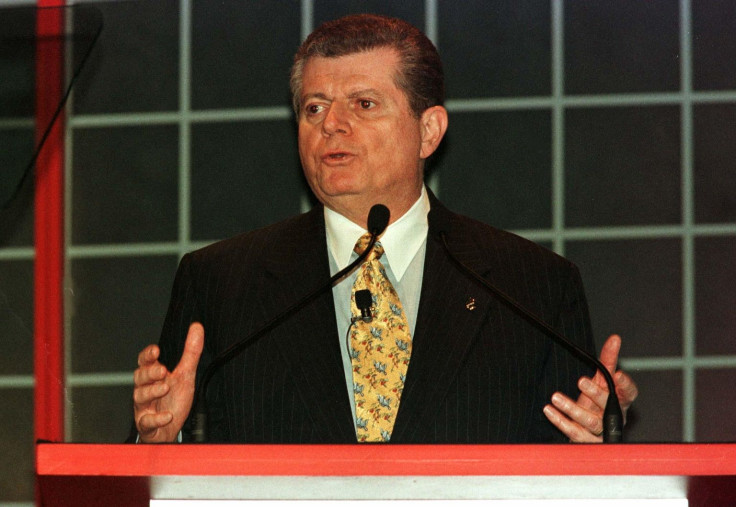From Silicon Valley to Asia: Why ex-Apple CEO Gil Amelio sees India as the next brave new world of the high-tech tomorrow

Gil Amelio has always been at the right place at the right time, overseeing the development of nascent technology that can literally shape the landscape where millions of people live, play, work and do business. As the CEO of Apple in the late 1990s, he was at the forefront, taking computing to the next level; the Macintosh transformed the personal computer into an electronic workhouse into a digital companion that enabled its users to enjoy music and explore art and socialised gaming while making their work processes more efficient and convenient.
Twenty years later, as the chairman of the board of rising tech company 5BARz International (OTCQB: BARZ), he is at the front lines again, this time helping to shepherd India into its phenomenal transformation into one of the digital capitals of the world.
India has been acknowledged as the third largest start-up centre globally, according TelecomAsia. More than 4,200 of newly launched data-driven firms that offer cutting-edge solutions on marketing, health services and smart devices, just to name a few, are mushrooming in cities like Bengaluru, New Delhi, Mumbai, Hyderabad, Chennai and Pune. The Indian government is encouraging the acceleration of this growth with campaigns like “Digital India,” which provides incentives like tax incentives for courageous entrepreneurs. It also creates a secure environment for experimentation where innovators can pursue and develop ideas without giving in to the fear of failure.
Not surprisingly, the United States leads the way as the number one tech hub with 47,000 start-ups, with the United Kingdom in second place with 4,500.
Amelio, no stranger to the rapid surge of progress in both the western and eastern hemispheres of the globe, said that mobile infrastructure that can ensure non-stop connectivity is the key to laying out a solid path for continued technological expansion. Smart devices must always be able to stream, filter and store data from and to various users who are working and communicating with each other.
The Internet of Things (IoT), which others have touted as the Fourth Industrial Revolution, requires a functioning data-wired ecosystem that must be plugged into office systems, network infrastructure and mobile phones at all times. All it takes is one loose, non-connected piece of equipment, a disrupted conversation and an area suddenly gone wireless to cut off an organisation or a person from the overall scheme of things, hampering communications, productivity and perhaps even business relationships.
Amelio’s main instrument in making mobile connectivity more real is the 5BARz network extender, a plug-and-play, portable device that can boost the cell signals of smart devices within a 4,000-metre radius. Without having to tap the nearest Wi-Fi router, it can boost weakened frequencies up to the maximum of five bars. Professionals on the go enjoy unfettered communication and data transmission with their bosses and colleagues back home even if they are in another city or another country. Using the network extender, work-at-home employees and independent contractors perform at peak levels and comply with their deliverables with minimal stress and delay .
The network extender has enjoyed wide traction in the US and Latin America since its launch in 2013. Amelio expounded that the challenges it addresses in India are quite different.
“The main concerns in India have to do with cell drops and the slow Internet speed in smart devices. What causes these are the construction materials, which are usually steel and concrete, that block out the signals. Then, the Internet network is also shared with a large number of users compared to the west. Our network extender can work effectively though its owner is working inside the steel-and-glass building. The poor signals caused by shared Wi-Fi are addressed by the network extender’s powering them up,” Amelio explained.
5BARz’s Indian office, 5BARz India Pvt. Ltd., has established partnerships with the country’s leading telecoms to reduce the number of cell drops and strengthen the Internet speed of their clients’ e-commerce transactions and online communications. According to Tech Facts, the so-called call drop issue has become so prevalent that the Telecom Regulatory Authority of India has launched a portal where citizens can locate areas that have strong cell signals.
“This is a good step forward in providing Indian smart device and internet users the best service forward,” Amelio said. “The hurdles may be significant, but they are far from insurmountable. India is in the best position to make their online landscape and all its related services the most competitive and possibly the strongest in the world. You are looking at a nation of tech entrepreneurs and product innovators. India’s digital ecosystem cannot help but grow, and its players will find a way to improve on the current limitations of the infrastructure. Connectivity and India’s start-ups are interlinked, with one pushing the other. And one thing I’ve learned in Silicon Valley, what we see as the problems of today give birth into the next great radical invention of tomorrow.”





















